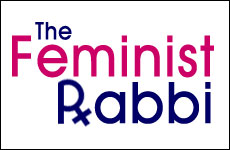 Vampire Weekend's Surprising Jewish Stories
Vampire Weekend's Surprising Jewish Stories


5 min read
My definition of feminism is at odds with many. Let the dialogue begin.
I am an Orthodox rabbi and an unapologetic feminist. Admittedly, my understanding of feminism differs from that of many others. “The beginning of wisdom” Socrates wrote, “is the definition of terms,” and here is my definition:
Fem-in-ist: A feminist is one who validates, encourages, and celebrates the feminine tendency. A feminist – male or female – is one who recognizes the prominence of femininity in the family unit, social and commercial relationships, and the development of a modern, moral society.
Traditional Jewish philosophy teaches that God made parallel fields of human experience and desire, the masculine and feminine. The masculine seeks power, the feminine seeks harmony. The masculine is naturally suspicious, seeking to uncover hidden threat; the feminine is naturally trusting, honed to uncover hidden good. The masculine is drawn to the exterior, to bricks and mortar. The feminine is drawn to the interior, beauty and symmetry, the happenings of the soul.
Before my ideological opponents draw their verbal six-shooters, please let me add this caveat. While male and female, in Jewish thought, are absolute fields, men and women are not. Each human being is an amalgamation of masculinity and femininity. Most men have some feminine tendencies and most women own some male qualities. The difference between my feminist friends and me is that I believe the healthy man is mostly male and the healthy woman is mostly female, and they believe… that such is a terrible thing to say.
We are not entirely at odds. They and I agree that some women and men buck the trend and excel in the alternate arena. They and I agree that men who are great nurturers and women who are great hunters should be given a seat at the table – or at the head of the table – if appropriate. They and I agree that the female is diminished when reduced to external beauty and that the male is caustic without nurturing ability. They and I agree that character is more significant than muscle tone, intelligence more attractive than figure, and that a wholesome interior reflects beautifully even on an imperfect facade.
Modern feminists respect women exhibiting masculine tendencies, whereas traditional feminists respect expressions of femininity.
The difference is that by and large, modern feminists seek respect for women in growing masculine tendencies, whereas the traditional feminist gives them respect for expressing their femininity. The modern feminist says that breaking gender norms is breaking a glass ceiling. The traditional feminist says it is an individual’s achievement, unreflective of the greatness of the gender.
And, in citing a growing mound of empirical evidence, the traditionalist may suggest that parading the exceptions as the ideal has weakened primal satisfaction for millions of women and led to unattached, disconnected and discontented women the world over.
One of the key missions of feminism is to address the blight of women not being treated properly by men, of unseemly men leaving the mother of their children for younger women. Their solution is to make women independent of men during their naturally marriage-focused years, and to encourage them to look to matrimony only in their mid-30s, when career skills have been refined and, if needed, they can make a go of it without men.
Yet this movement, chartered to help women, often expends a most innate feminine desire, to be a loving wife and mother.
Traditional feminists address the challenge differently. They encourage women to marry young but to choose inspired men who appreciate providing and protecting, whose relationship with God and position in their community doesn’t allow them to be dishonorable. Instead of encouraging women to be as calculating as men, we encourage them to be as nurturing and discerning as women can be, and to demand decency in the men they consider.
Traditional feminist ideology mirrors the human condition. Man and woman are primed to create life. Man provides the seed and woman nurtures it to reality. Man provides the food and shelter and female builds humanity. Individual natures may vary, individual relationships may differ, but the Judeo-Christian ethos is that co-dependent marriage and co-dependent child rearing is the secret to a wealth of human satisfaction.
My dear mother stayed at home while raising 11 children, and my father worked three jobs to cover the bills. My mom, who has a M.A. in Education, began teaching full-time at a college when her youngest began elementary school. If you asked her today, she would acknowledge her career as a professional achievement, but that being a wife and mother were a much more important celebration of her femininity.
My wife and I are blessed with six children, including three beautiful daughters. We are educating them to use their God-given talents to their fullest. If they are gifted in the sciences, we pray they become doctors, with a strong nurturing aspect. If they are gifted in law, we pray they become lawyers, with a generous caring side. And if, after graduating college, they choose to stay home and raise their children, we will be ever so proud of their wholesome feminine contribution to life, community and goodness in the world.
